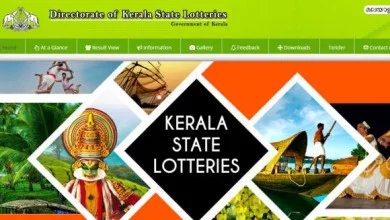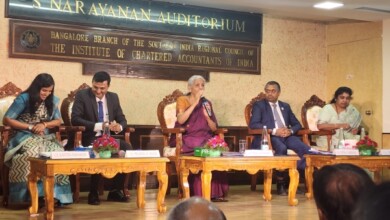Jal Jeevan Mission: Addressing the problem of water contamination

- 7.19 Crore tap water connections provided to rural households till date under Jal Jeevan Mission.
- Every rural home in Andaman & Nicobar Island, Goa and Telangana provided clean tap water supply since start of Jal Jeevan Mission.
- A total of 48,169 rural habitations have been reported by States to be quality-affected.
- Since the start of JJM, about 10,650 Arsenic/ Fluoride affected habitations have been provided potable water.
Minister of State for Jal Shakti, Shri Rattan Lal Kataria informed the parliament about the status of water contaminated habitations in India. This was in reference to a starred question asked by MP Shri Girish Bhalchandra Bapat in Lok Sabha. Shri Kataria informed that the Government started a National Water Quality Sub Mission (NWQSM) in the year 2017 specifically aimed at 27,544 habitations affected by Arsenic and Fluoride. Till date, all such habitations have been provided with potable water barring 1,369 habitations. He informed that the work is going on to cover left out habitations as soon as possible. It is the endeavor of the Government to provide potable water of adequate quality to the quality-affected habitations, for which top-most priority is given under Jal Jeevan Mission and States are making efforts to ensure piped water supply in these areas.
Shri Kataria further informed that under the Jal Jeevan Mission, a flagship programme of the Central Government, priority is accorded to quality affected habitations. The priority has been accorded at the planning stage while compiling the Village, District level water supply plans. Moreover, 10% weightage has been accorded for financial allocation to such habitations. Upto 2% of the allocation to States/ UTs can be utilized for water quality monitoring and surveillance activities, which includes setting up of and upgrading existing water quality laboratories, procurement of equipments, instruments, chemical/ reagents, glassware, consumables and NABL accreditation of laboratories etc.
In habitations that are adversely affected by Arsenic/ Fluoride contamination, States are advised to plan and install Community Water Purification Plant (CWPP) on priority, as an interim measure to provide 8-10 lpcd (litres per capita per day) potable water for cooking and drinking purposes.
To involve and empower the community at the grass root level for monitoring the quality of water in their respective habitations, Field Testing Kits (FTKs) are being distributed and 5 women from every village are being trained for using these kits. This will facilitate early detection and identification of water-borne risks. So far, 4.7 Lakh women in 1.25 Lakh villages have been trained for water testing.
Shri Kataria mentioned about the recently launched Water Quality Management Information System (WQMIS), wherein over 2,000 water quality testing labs all over the country have been brought together and listed at a single portal for information of the general public. Now, people can know about the nearest lab and send their water samples for testing at nominal rate and obtain online reports of water quality. This is a progressive step towards water testing in the country.




